Think of Renault Trucks and most people will conjure up images of rigid body lorries and mileage-munching tractor units.
But there is another side to Renault Trucks that is becoming an important piece of the jigsaw by broadening the company’s model offering to fleets: light commercial vehicles (LCVs).
A legacy of its former ownership by the French car giant, the LCV operation trundled along under the radar for many years, seen as a lessor priority for a company more than used to slugging it out in the truck market.
That changed in 2015 when Renault Trucks restructured its business into separate truck and van divisions, appointing an LCV brand manager, Richard Chamberlain, to boost its profile in the market.
Following Chamberlain’s move to Fiat Professional in 2016, Renault Trucks appointed Grahame Neagus (below) as head of LCV for UK and Eire.
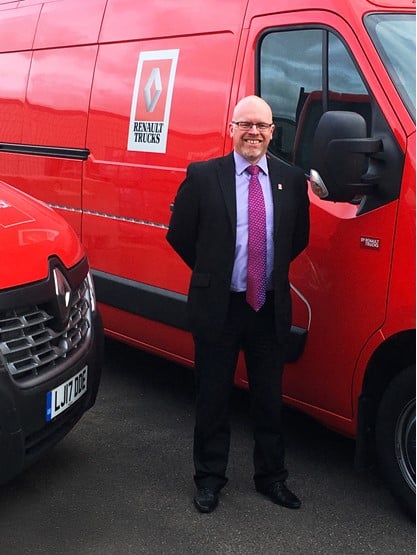
He has extensive experience in the van sector, having helped to set up the LCV section at Lex Autolease, and also serving as LCV director at Prohire.
Neagus says light commercial vehicles have become a key part of the Renault Trucks strategy, one which also complements the broader business given that parent company Volvo Trucks does not have any van offering of its own.
So why should fleets choose Renault Trucks rather than Renault UK for large vans? Both are branded Master and appearance-wise they are identical, except the Renault Trucks vans are sold with a red-backed diamond logo rather than yellow.
The differentials come with the cultural mind-set, the aftersales service and the ability to spec and build complex bodies, according to Neagus.
“Our focus is on bringing a heavy truck ethos to the van market,” he says. “The critical difference is car brands see it as a large van, we see it as a small truck.”
For that reason, Renault Trucks will go no smaller than a 3.3-tonne van. “Anything smaller is not a small truck; it would be a distraction,” Neagus says.
One of his first projects was to introduce a telematics solution, using the truck product as a blueprint.
Following nine months of development, Renault Trucks launched Vantelligence earlier this year to give fleets an identical level of data and service across their van and truck operations. The hope is to get 40-45% of vans installed with telematics next year.
Vantelligence ties together all elements of the van, not simply what the driver does behind the wheel. For example, for cherry pickers it tells the fleet when the lift was raised, enabling them to plot time per job.
It also identifies when the booth is within reach of the boom for added safety protection. For refrigerated bodies, it tracks door openings; for winches, it tracks usage.
“It is all-encompassing. It’s not just driver behaviour and tracking, it’s about the entire asset,” Neagus says.
“We want to separate the company from being a ‘me-too’ to a ‘go-to’ brand. It’s important to us because many of our customers – and Volvo Group customers – have products in the 3.5-tonne and 4.5-tonne sectors, so there is a great opportunity to cross-sell.”
Renault Trucks has analysed and segmented the industry to provide clear targets, prioritising construction, utilities, logistics, refrigeration and people transport.
“We have a mix of products to fit those sectors, such as front-wheel drive, rear-wheel drive and 4x4 driveline choices, and a wide range of cab options,” says Neagus.
Many of them sit under the Ready for Business range which includes refrigerated units, cherry pickers, Lutons, tippers, dropside and welfare vans. It can knock up to 16 weeks off the build process.
Seven out of 10 sales are chassis or platform cabs; just 30% are panel vans. For Renault UK, “yellow Renault” as Neagus puts it, the proportion is reversed.
Chassis/platform cabs are more complex and require greater dealer knowledge to ensure customers get the right model specification for their requirements.
That’s where the expertise of the truck network with its close alliances with trusted converters gives the edge.
“Our strategy has two elements,” Neagus says. “First, to differentiate us from our competitors; second, to aim at the professional operator – the people that run a fleet and want a solution and a partner, not simply a 3.5-tonne van.
“Our sales people are used to speccing £150,000 eight-wheelers and not getting it wrong, so they already have the right mind-set for a consultative, strategic sell.”
He points to the company’s new six-tonne 6x2 rigid Master as a good example of this approach. It was developed to provide an alternative to 7.5-tonne trucks which are not seen as user-friendly in urban environments and have low fuel efficiency of just 16-17mpg.
Renault Trucks’s solution was to develop a front-wheel drive low-deck Master, with 165PS, offering load capacity of three tonnes from its 5.5-metre body. In contrast, 7.5-tonne trucks typically carry 2.6 tonnes.
With official fuel economy of 24mpg and lower maintenance costs, Neagus claims the Master will save fleet operators £27,000 over five years, while the lower CO2 and particulate emissions will benefit the environment.
“It also takes up less road space than two 3.5-tonne panel vans with the same payload, which also reduces fuel cost and CO2, improves utilisation of labour and cuts the load time,” Neagus adds.
“Due to the way it’s designed, the six-tonne Master is six times quicker to load than a 7.5-tonne truck. It’s a game-changer for us and a clear example of how we make ourselves different from our competitors.”
Available to order now, Neagus expects to sell around 150 a year. “Some manufacturers might not be interested because of the low volumes, but for us it’s about understanding and meeting the needs of our customers in certain sectors with a unique offering,” he says.
Renault Trucks’s van volumes have been growing steadily over the past year, up 16% year-to-September at 1,102 units (in a van sector down 1.5%), putting the company on track for around 1,450 full-year sales.
The target is to get to 2-2½% of the 3½-4½ tonne market by 2020, around 2,000 units. Given it was only selling 450 four years ago, progress is gathering momentum.
The van-truck crossover is high, with 70% of customers also running trucks, the majority (but not all) Renault Truck models, and they typically have a need for four or five vans.
“Our growth has been at the expense of others because customers are becoming more demanding,” Neagus says. “They need a sales process that listens to their needs and can be creative enough to bring solutions to market in a small scale if necessary.”
They also need aftersales support around the clock, mirroring their truck expectations.
“Aftersales is key; we have overnight 24/7 operations at our dealers,” Neagus says. “Uptime is vital – 80% of our customers will use out-of-hours servicing.
"For repair and maintenance (R&M), we have a truck ethos. If a customer wants a tailored R&M contract on their Master, we can do that.”
Bespoke contracts might include on and off-road usage, ancillaries, 24-hour support and more frequent servicing schedules due to high annual mileage. Neagus is looking to increase uptake of R&M contracts from 26% to 40%.
“Whether it’s our conversions, our approach to sales or our aftersales service, we are a manufacturer of solutions,” he adds.
Distinct differences in the electric Master ZE
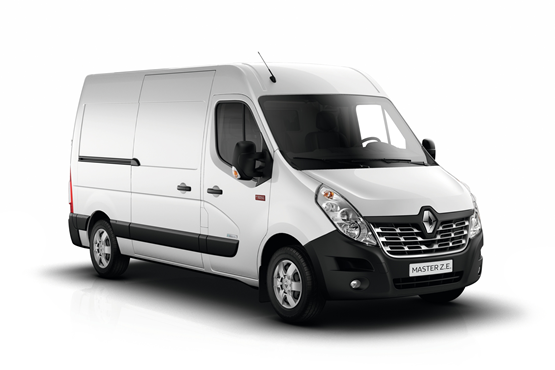
While the base diesel vans are identical in look and feel, Renault Trucks will have its own specification with it comes to the electric Master ZE, drawing on its knowledge in developing electric trucks.
Neagus declines to share the detail, but says: “We have been building electric trucks for 10 years. While the Master ZE will come from Renault, there will be specific differences on our product.”
Renault Trucks will offer an electric van and platform cab next year, but no chassis cab due to where the batteries are located.
The Master ZE will join an “electric family” within the Volvo Group, with buses and 16-tonne/26-tonne trucks offering range of up to 300km (186 miles).
“We have the know-how and this will be integrated into our dealer network,” Neagus says.
He believes there is a sizeable market for the van. “There are lots of customers in and around London and they will need 10-15% of their fleet to be electric over time,” he says. “We can offer that solution.”









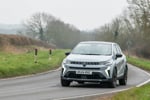
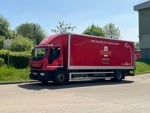

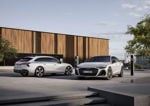






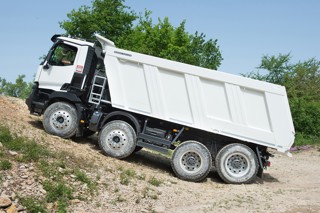
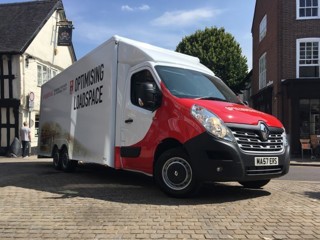
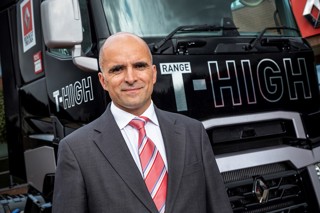
Login to comment
Comments
No comments have been made yet.